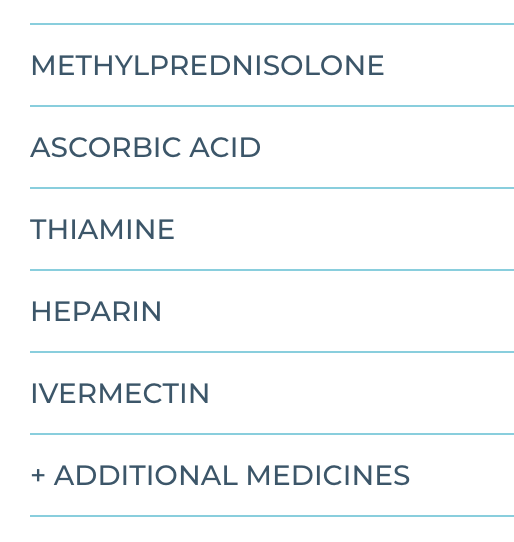Ivermectin: voorlopig belowend
Die land gons tans oor die anti-parasitiese middel Ivermectin, wat moontlik voorkomend en as behandeling teen Covid doeltreffend is.
Hoe werk die middel? Waarom kan die middel nou nie net vir alle Covid-gevalle ingespan word nie? Waarom is die een vir mense nie beskikbaar nie, maar net die formulering vir diere? Wat is die grens tussen oorversigtigheid en nalatigheid van owerheidskant? Hoe vinnig kan standpunte verander?
Marí Hudson gesels met Prof Eric Decloedt, Mediese Spesialis in Kliniese Farmakologie verbonde aan die Universiteit Stellenbosch se Divisie van Kliniese Farmakologie, oor dié aspekte.
Agtergrond oor Ivermectin
- Dit is maar een van talle bestaande middels wat ondersoek word om uit te vind dat dit teen Covid ingespan kan word.
Van die ander middels sluit in, asook middels soos Vit D, Magnesium, Statiene, Melatonien, Zinc:

- Die Departement van Gesondheid het op 17 Desember ‘n verslag uitgereik waarin hulle sê dat daar nie voldoende bewyse is dat Ivermectin as Covid-voorkoming of -behandeling gebruik kan word nie. Lees die volledige verslag hier:
Rapid review of Ivermectin for COVID-19_21December2020 - ‘n Groep gerespekteerde mediese navorsers en dokters in die VSA het die Amerikaanse senaat versoek dat die FDA dringend die nuwe data oor die doeltreffendheid van Ivermectin in die voorkoming en behandeling van Covid moet hersien.
Kyk na die video:
Pierre Kory, M.D., Associate Professor of Medicine at St. Luke’s Aurora Medical Center, delivers passionate testimony during the Senate Homeland Security and Governmental Affairs Committee hearing on “Early Outpatient Treatment: An Essential Part of a COVID-19 Solution, Part II.” Dr Kory se voorlegging oor die doeltreffendheid van Kortisoon in die behandeling van laat-stadium Covid, het gelei tot die goedkeuring vir die gebruik van Kortisoon in Covid.Lees meer oor die spesifieke behandelingsprotokolle wat Dr Kory et al doeltreffend gevind het:
https://covid19criticalcare.com/
FLCCC-Ivermectin-in-the-prophylaxis-and-treatment-of-COVID-19 - Die WGO het pas ‘n verklaring uitgereik oor Ivermectin.
“WHO-sponsored review of ivermectin trials indicates 83% reduction in covid mortality.Dr Andrew Hill of the Department of Pharmacology at the University of Liverpool (UK) is currently performing a WHO-sponsored review and meta-analysis of randomized controlled trials of ivermectin against covid. In the following 12-minute video, Dr Hill is presenting his preliminary results, which indicate a highly significant 83% reduction in covid mortality (95% CI 65%-92%).This result is based on in-hospital trials, so it does not yet take into account early ambulatory and prophylactic treatment. The authors of the review intend to include three more trials, due to be published sometime in January, before providing a final conclusion. At the end of his presentation, Dr Hill describes low-cost ivermectin as a potentially “transformational treatment” against covid.”https://swprs.org/who-preliminary-review-confirms-ivermectin-effectiveness/ - Gisteraand op die nuus: Die aankondiging dat SAHPRA die gebruik van Ivermectin as deel van Covid-behandeling goedkeur. Maar DIT IS TOE WEEREENS FOPNUUS.
- Hier is die jongste verklaring van SAHPRA. Let veral op na die laaste 2 paragrawe: hulle wag op aansoeke vir kliniese toetse en data en sal allles in die snelbaan plaas.
6 January 2021
SAHPRA’s guidance on the use of ivermectin in the prophylaxis or treatment of COVID-19
What is ivermectin?
Ivermectin is a widely used drug for the treatment and control of parasites in animals and is used to treat several tropical diseases in humans not commonly seen in South Africa, as well as scabies and head lice. Ivermectin is a synthetic derivative of the antiparasitic class of compounds known as avermectins.
In South Africa ivermectin is registered for use under Act 36 of 1947 (Department of Agriculture) for use in animals. This means that veterinarians and other trained personnel are allowed to prescribe it as an antiparasitic agent for a variety of animals. The drug is not currently registered for human use, but SAHPRA occasionally grants Section 21 permits for the use of topical ivermectin as an unregistered product for the treatment of individual patients with conditions such as scabies or head lice.
Several investigators have reported that when tested in the laboratory, ivermectin inhibits replication of the severe acute respiratory syndrome coronavirus 2 (SARS-CoV-2). Given the current coronavirus disease-19 (COVID-19) pandemic, this has understandably received a lot of media attention. Thus, several clinical studies have been undertaken to evaluate ivermectin’s efficacy in treating the COVID- 19 infection.
In some countries where ivermectin is registered for human use, the human use formulation is being used off-label in the management of Covid-19 infections where the clinical responsibility for monitoring of safety and efficacy lies solely with the prescriber. Furthermore, there are widespread reports of use of ivermectin for prophylaxis or treatment of COVID-19 in South Africa using the veterinary product.
SAHPRA’s view on the use of ivermectin communicated in December 2020
On the 22 December 2020, SAHPRA indicated that in relation to ivermectin use for COVID-19 that “Ivermectin is not indicated nor approved by SAHPRA for use in humans. There is no confirmatory data on ivermectin available as yet for its use in the management of COVID-19 infections. In terms of safety and efficacy there is no evidence to support the use of ivermectin and we do not have any clinical trial evidence to justify its use.
The Essential Medicines List (EML) COVID-19 Sub-committee Rapid Review on ivermectin (21 December2020)
SAHPRA also notes that the EML COVID-19 Sub-committee published a Rapid Review on ivermectin (21 December2020) in which they similarly conclude that:
• The overall quality of the randomized trials involving ivermectin in COVID-19 patients is extremely low.
Page | 1
• From the available randomized control trial evidence, ivermectin is not superior to placebo in terms of viral load reduction or clinical progression. There is no evidence from randomized control trials for any reduction in mortality.
Eligible patients with COVID-19 in South Africa should be considered for enrolment in relevant therapeutic trials.
SAHPRA’s review of the current data on the use of ivermectin for the treatment or prophylaxis of COVID-19 infections
In response to this growing interest in ivermectin and the growing amount of data on this issue in COVID- 19 treatment and prevention, SAHPRA has now reviewed again the available data from clinical data studies.
A recent meta-analysis, i.e. systematic review, of the clinical trial data for the treatment of COVID-19 has been conducted by Dr Andrew Hill of the University of Liverpool, sponsored by Unitaid which is a global health initiative that works with partners to bring about innovations to prevent, diagnose and treat major diseases in low- and middle-income countries). Although this report is widely available publicly, it has not yet been published in a peer-reviewed scientific journal.
The meta-analysis concluded that that the use of ivermectin in the management of COVID-19 infections is associated with faster time to viral clearance, shorter duration of hospitalisation and higher rates of clinical recovery and 75% improvement in survival rates.
However, the meta-analysis also concluded that additional randomized clinical trial data were needed to confirm clinical benefit in COVID-19 infections as well as define an optimized dosing regimen. Furthermore, Dr Hill identified several limitations with the data from these clinical trials, including that:
- Current results are based on limited randomised trials
- There is potential for publication bias
- The individual trials reviewed had limited statistical power
- Several trials were open-label presenting a potential for investigator bias
- Range of doses and durations were not standardised
- Endpoints differed between trialsIn his conclusion, Dr Hill indicated that well designed clinical trials are required to provide sufficient scientific data for the use of ivermectin for the treatment of COVID-19.Based on the Hill meta-analysis and the Front Line COVID-19 Critical Care Alliance (FLCCC), SAHPRA notes the following:
- The overall quality of the randomized clinical trials involving ivermectin in COVID-19 patients is poor and underpowered. From the available randomized control trial evidence, ivermectin appears not to be superior to placebo in terms of viral load reduction or clinical progression. There is no evidence from randomized controlled trials for any reduction in mortality.
- The studies vary with respect to the population groups included in the studies i.e. out-patients, early hospitalizations, patients with longer duration hospitalizations, patients in ICU etc.
- The dosages in the various studies are not uniform. As a result, dose-finding cannot be established for the safe and effective management of COVID-19 infections (whether it is for treatment or prophylaxis).
Page | 2
- Ivermectin has been trialed with several other concomitant medicines (proven and unproven, either alone or in combination with other medicines) and this limits the conclusions that can be made about ivermectin’s safety and efficacy.
- These studies have further limitations that have been identified by the reviewers themselves as indicated above, the most notable being that not enough trial data is currently available. But it is noted that there will be further clinical data available by mid-to-end January 2021. SAHPRA eagerly awaits this information in order to review its stance on the use of ivermectin in the management of Covid-19 infections.SAHPRA notes that to date, there have been no positive recommendations for the use of ivermectin in the management of Covid-19 infections by any regulatory authority with which SAHPRA has reliance agreements, e.g. USFDA, EMA, MHRA, etc., and that the WHO does not currently recommend the use of ivermectin for the treatment or prophylaxis of COVID-19 infections.Furthermore, a report on the pharmacokinetics of ivermectin concluded that ‘Preliminary findings suggest that standard doses of ivermectin would not result in efficacious concentrations, and that extraordinary doses to achieve efficacious concentrations may result in unacceptable toxicity in COVID-19 patients.’ (Ref: Pharmacometrics Africa and CERTARA).It is also important to note that while ivermectin is considered generally safe, side-effects include skin rash, nausea, vomiting, diarrhea, stomach pain, facial or limb swelling, neurologic adverse events (dizziness, seizures, and confusion), sudden drop in blood pressure, severe skin rash potentially requiring hospitalization and liver injury (hepatitis). Laboratory test abnormalities include decrease in white cell count and elevated liver tests.
Current status of applications to SAHPRA for clinical trial approval or for registration
At present, no ivermectin clinical trial applications have been submitted to SAHPRA for review. SAHPRA encourages the submission of clinical trial applications designed to establish the safety and efficacy of ivermectin in the management of Covid-19 infections for both treatment and prophylaxis and commits to expediting their review. This approach has previously been applied to clinical trial applications for other investigational medicines that were being evaluated for COVID-19 management.
In addition, SAHPRA has received no applications to register ivermectin for either prophylaxis or treatment of COVID-19 but commits to fast track the review of any such application should this be submitted.
Conclusion
There are currently no applications either for clinical trials or for the registration of ivermectin for the treatment or as prophylaxis for COVID-19. However, SAHPRA encourages and supports all well- designed, ethically approved, scientific studies designed to identify new or existing medicines that are used for the treatment or prophylaxis of COVID-19. SAHPRA reiterates its commitment to expedite the review of such studies. Furthermore, as the South African regulatory authority, SAHPRA will continue to evaluate any emerging peer reviewed publications or data on the use of ivermectin for the treatment of COVID-19, and notes that according to the global clinical trials register, additional data should become available in the course of the next few months. SAHPRA will also consider enabling access to approved formulations of ivermectin intended for human use, including through Section 21 authorisation, provided such a request is supported by evidence for the indication requested and is justified based on a risk benefit assessment that includes safety and clinical efficacy data.

